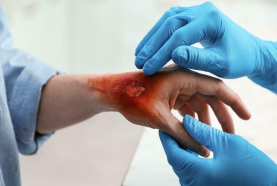What is Insomnia
Insomnia is a sleep disorder characterized by difficulty falling asleep, staying asleep, or getting restful sleep. It can be short-term (acute) or long-term (chronic).
Common Clinical Presentation
-
Difficulty falling asleep at night
-
Waking up frequently during the night.
-
Waking up too early and not being able to go back to sleep
-
Feeling tired or not well-rested upon waking
-
Daytime sleepiness or fatigue
-
Irritability, depression, or anxiety
-
Difficulty concentrating or remembering
Maintain a consistent sleep schedule by going to bed and waking up at the same time every day
Create a relaxing bedtime routine, such as reading or taking a warm bath. Avoid caffeine, nicotine, and alcohol close to bedtime.
Make the bedroom comfortable for sleep (cool, dark, and quiet).
Cognitive-behavioral therapy for insomnia (CBT-I) to address thoughts and behaviors that contribute to insomnia.
Relaxation techniques like deep breathing, meditation, or progressive muscle relaxation.
Medication: Over-the-counter sleep aids for short-term use.
Prescription medications, such as sedative-hypnotics, prescribed by a healthcare provider for severe cases
Limit screen time before bed as the light from screens can interfere with sleep.
Avoid large meals and heavy exercise close to bedtime.
Regular Exercise
Engage in regular physical activity during the day, but avoid vigorous exercise close to bedtime.
Manage Stress
Practice stress-reducing activities like yoga, meditation, or journaling
Healthy Diet
Maintain a balanced diet and avoid heavy meals late in the evening
You should know
If insomnia persists for more than a few weeks or affects daily functioning, consult a healthcare provider for a thorough evaluation and appropriate treatment plan.
Checkout Information
Get virtual care from a licensed clinician quickly —no appointment or insurance necessary.
One Time Purchase: $49.00
Answer a few health questions and our healthcare providers will review them within 2hrs with recommendations and prescription. Our consultation process is fast and straightforward.
Pick up any prescribed medication at a pharmacy of your choice.
Other Treatments

Epi-pen Prescription
Prescription for an epinephrine auto-injector used to treat severe allergic reactions.

Minor Burns
Superficial skin injuries causing redness, pain, and swelling.

Low Back Pain
Pain or discomfort in the lower back region.
